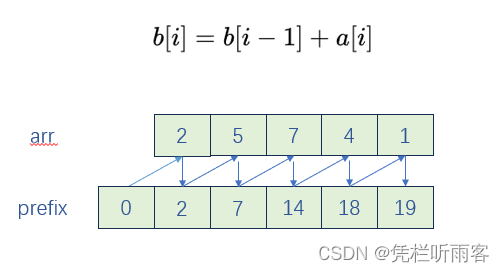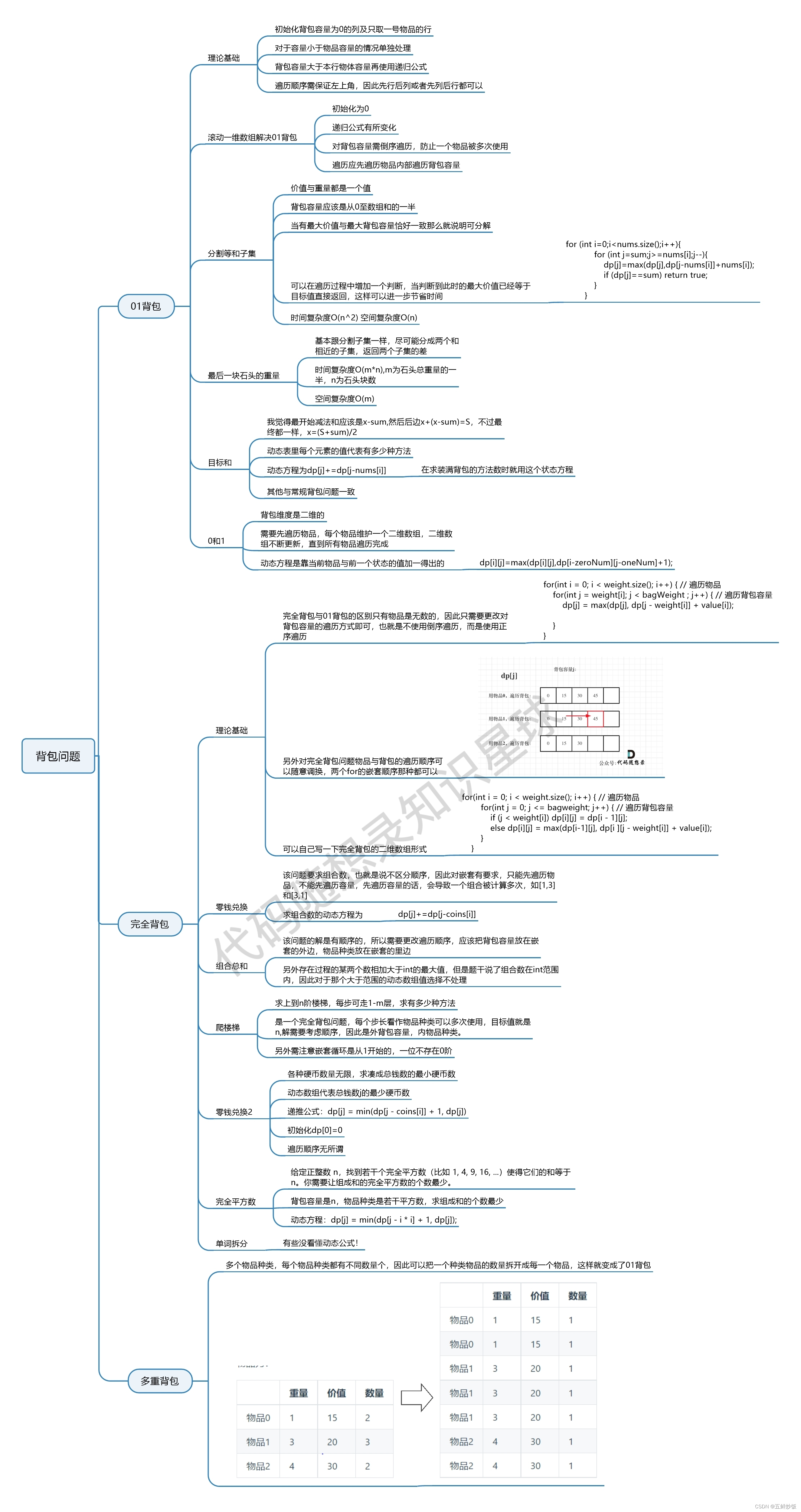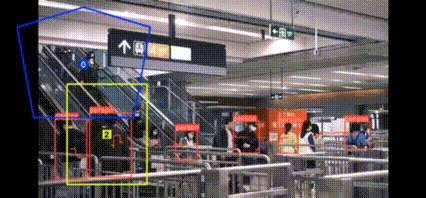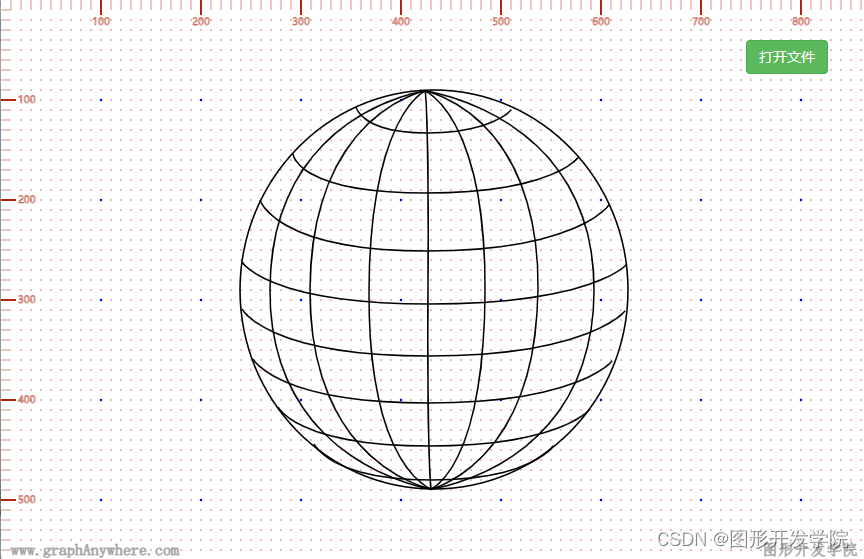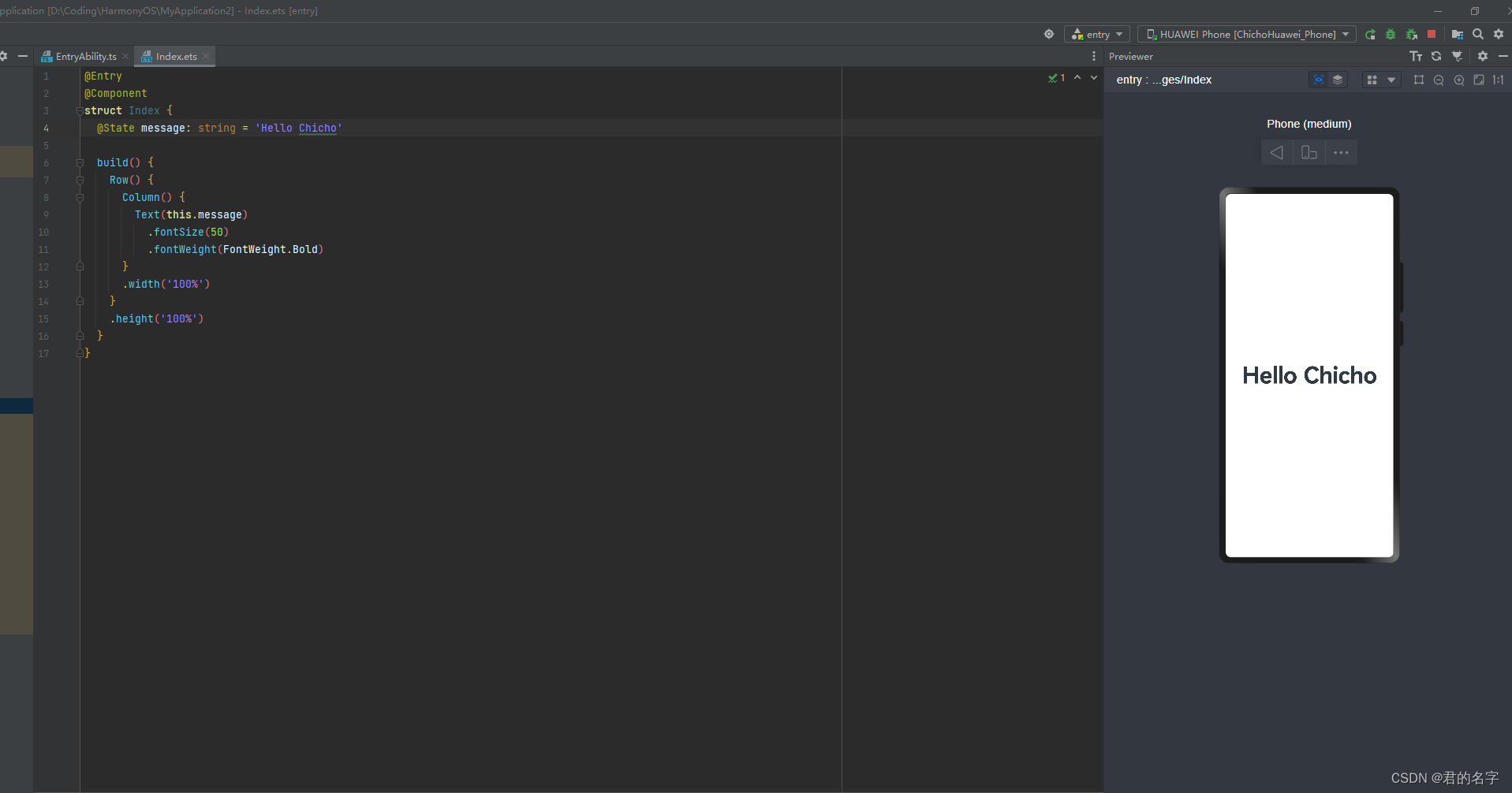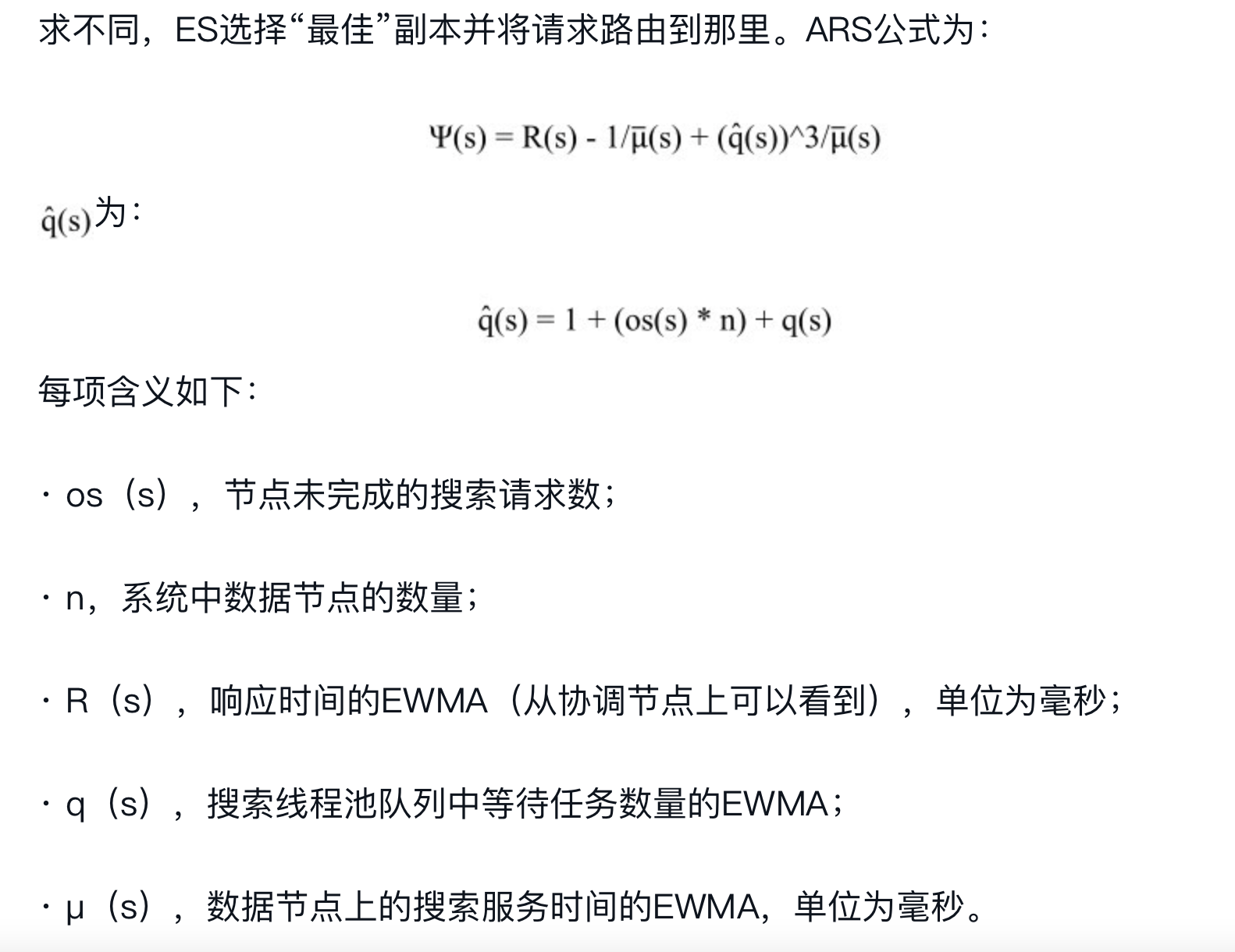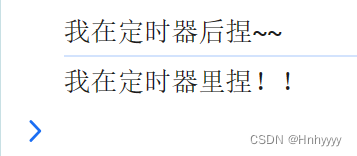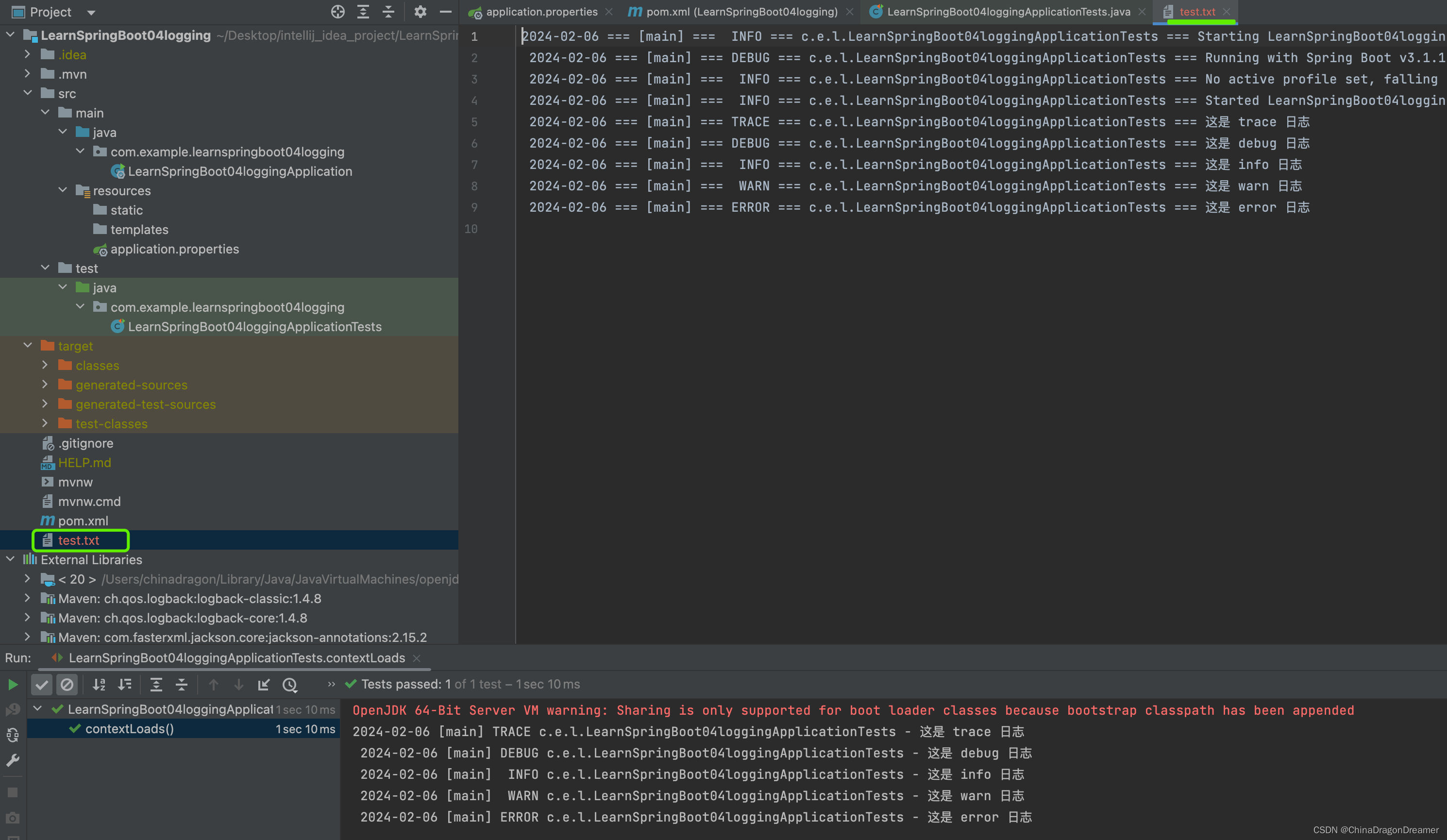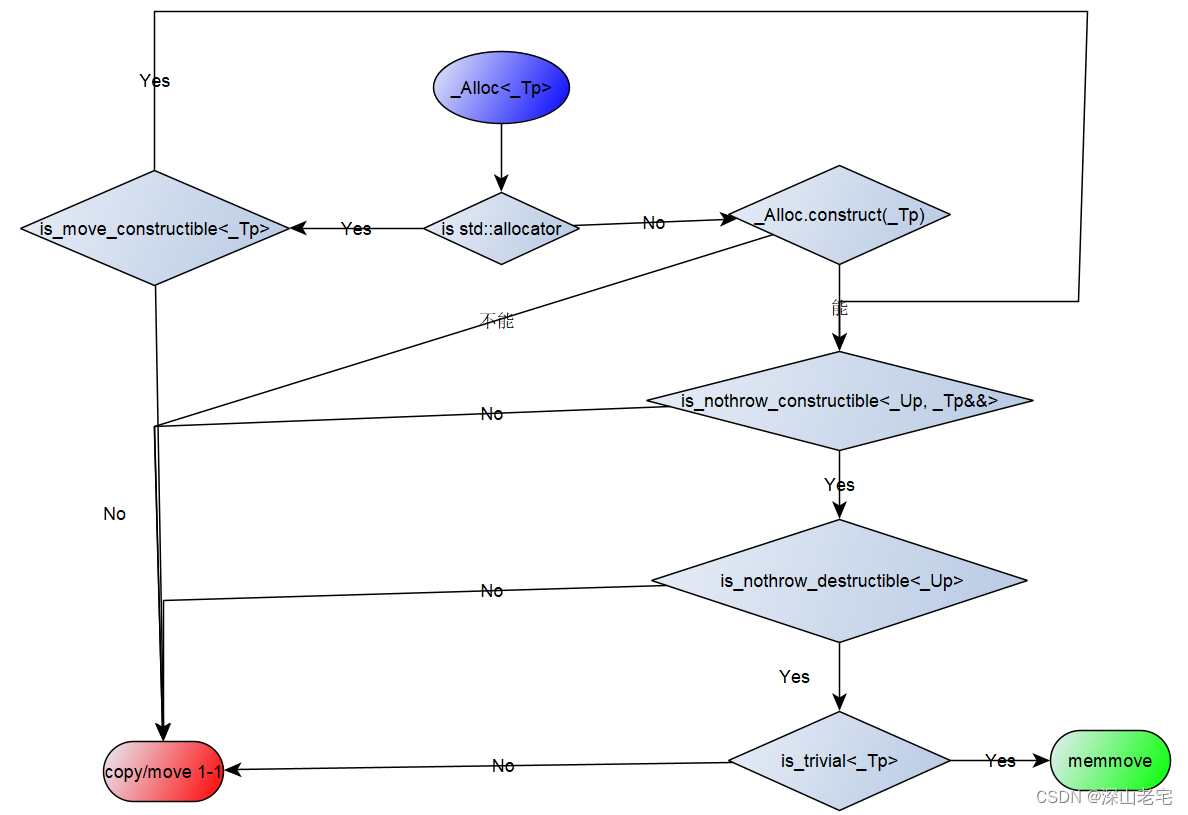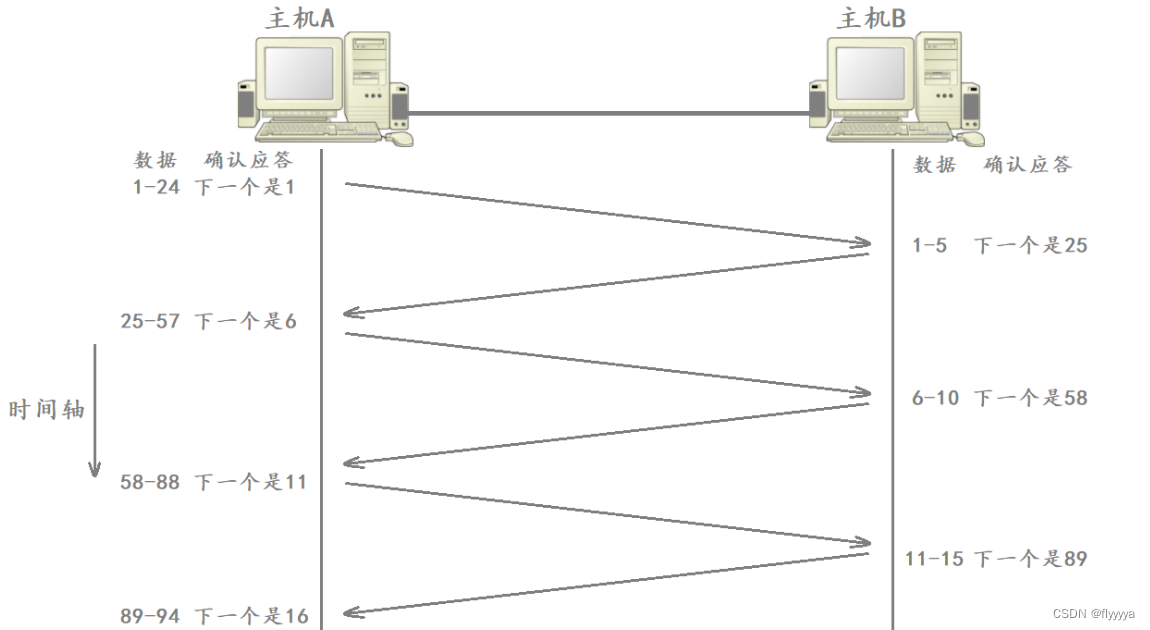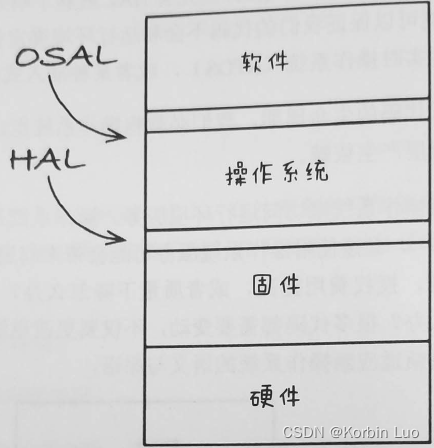代码来源于openprocessing,考虑到国内不是很好访问,我把我找到的比较好的搬运过来!
合集
参考:https://openprocessing.org/sketch/793375
https://github.com/SourceOf0-HTML/processing-p5.js/tree/master
这个可以体验6种笔触,作者介绍如下:
There are multiple pages. Use the “←” “→” buttons below to switch.
The second page explains the UI.
I will explain the sketches I made in the past.
Some variable names have been changed. I wanted to explain in order, so I divided the processing in detail. The UI has been added so the code is getting longer …
Video of this sketch in action (Twitter)
https://twitter.com/BUN_information/status/1195300719231791104
Gorilla Sun has written an explanation of each part with animations on his blog. Thank you!
https://gorillasun.de/blog/Simulating-brush-strokes-with-Hookes-Law-in-P5JS-and-Processing
其中三种种笔触的代码如下:
笔触4
原笔触代码地址:https://openprocessing.org/sketch/748836
特点:越快越粗,很适合画速写。
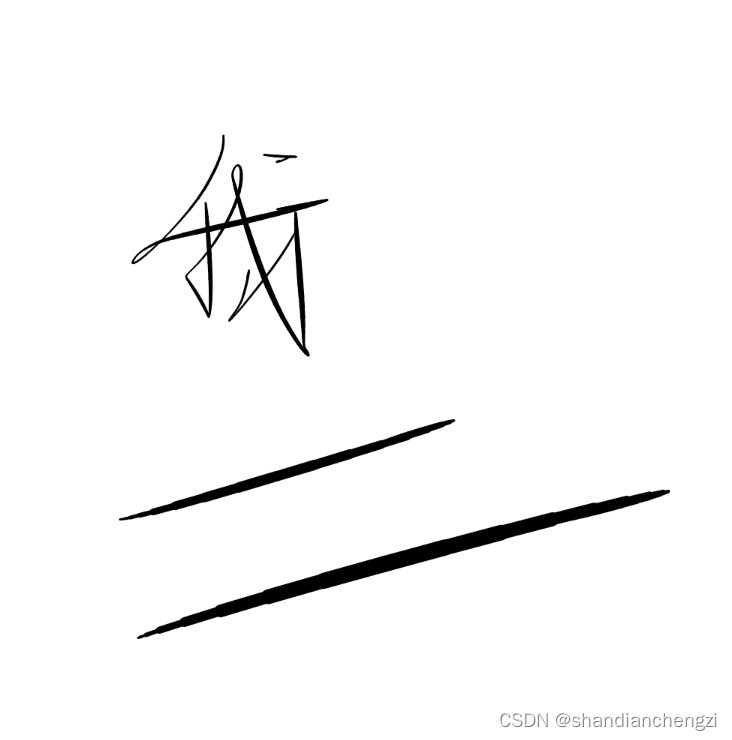
代码
/*
setup=()=>{m=n=x=y=u=v=0,s=0.08,f=0.8;createCanvas(L=500,L);background(C=255)}
draw=()=>{u+=(m-x)*s,v+=(n-y)*s,u*=f,v*=f,a=x,b=y;strokeWeight(abs(u+v)/3+1);line(x+=u,y+=v,a,b)}
mousePressed=()=>{x=m=mouseX,y=n=mouseY}
mouseDragged=()=>{m=mouseX,n=mouseY}
/**/
function setup() {
mX = mY = x = y = ax = ay = 0;
spring = 0.08;
friction = 0.8;
createCanvas( 500, 500 );
background( 255 );
}
function draw() {
ax += ( mX - x ) * spring;
ay += ( mY - y ) * spring;
ax *= friction;
ay *= friction;
oldX = x;
oldY = y;
x += ax;
y += ay;
strokeWeight( abs( ax + ay ) / 3 + 1 );
line( x, y, oldX, oldY );
}
function mousePressed() {
mX = x = mouseX;
mY = y = mouseY;
}
function mouseDragged() {
mX = mouseX;
mY = mouseY;
}
笔触5
原笔触代码地址:https://openprocessing.org/sketch/754815
特点:越慢越粗,墨水有晕染感,适合写字。
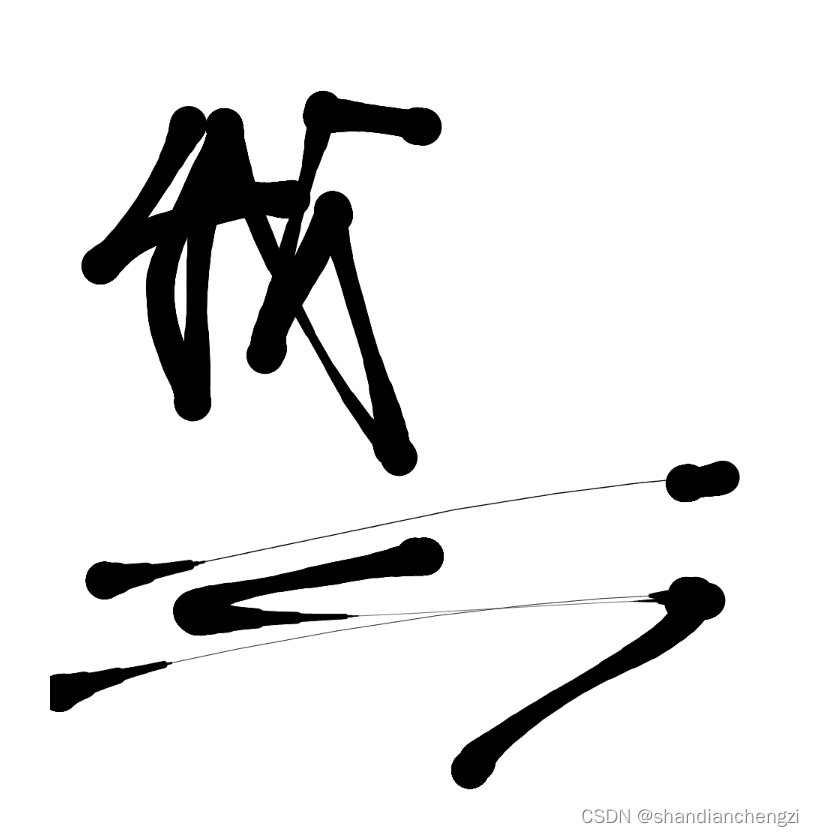
/*
setup=_=>createCanvas(S=500,S),D=10,m=n=x=y=u=v=r=f=0
draw=_=>{R=r;if(mouseIsPressed){m=mouseX;n=mouseY;!f?(f=1,x=m,y=n):0;u+=(m-x)/2;v+=(n-y)/2;u/=2;v/=2;r=25-sqrt(u*u+v*v)*.7;i=D;while(--i)strokeWeight(R+=(r-R)/D),line(x,y,x+=u/D,y+=v/D)}else if(f){u=v=f=0}}
/**/
function setup() {
createCanvas(S=500,S);
distance = 10;
spring = 0.5;
friction = 0.5;
mX = mY = x = y = ax = ay = r = f = 0;
}
function draw() {
oldR = r;
if(mouseIsPressed) {
mX = mouseX;
mY = mouseY;
if(!f) {
f = 1;
x = mX;
y = mY;
}
ax += ( mX - x ) * spring;
ay += ( mY - y ) * spring;
ax *= friction;
ay *= friction;
r = 25 - sqrt( ax*ax + ay*ay ) * 0.7;
for( i = 0; i < distance; ++i ) {
oldX = x;
oldY = y;
x += ax / distance;
y += ay / distance;
oldR += ( r - oldR ) / distance;
strokeWeight( oldR );
line( x, y, oldX, oldY );
}
} else if(f) {
ax = ay = f = 0;
}
}
/**/
笔触6
原笔触代码地址:https://openprocessing.org/sketch/755877
特点:越慢越粗,有墨水晕染,线条有割裂,适合写毛笔字。
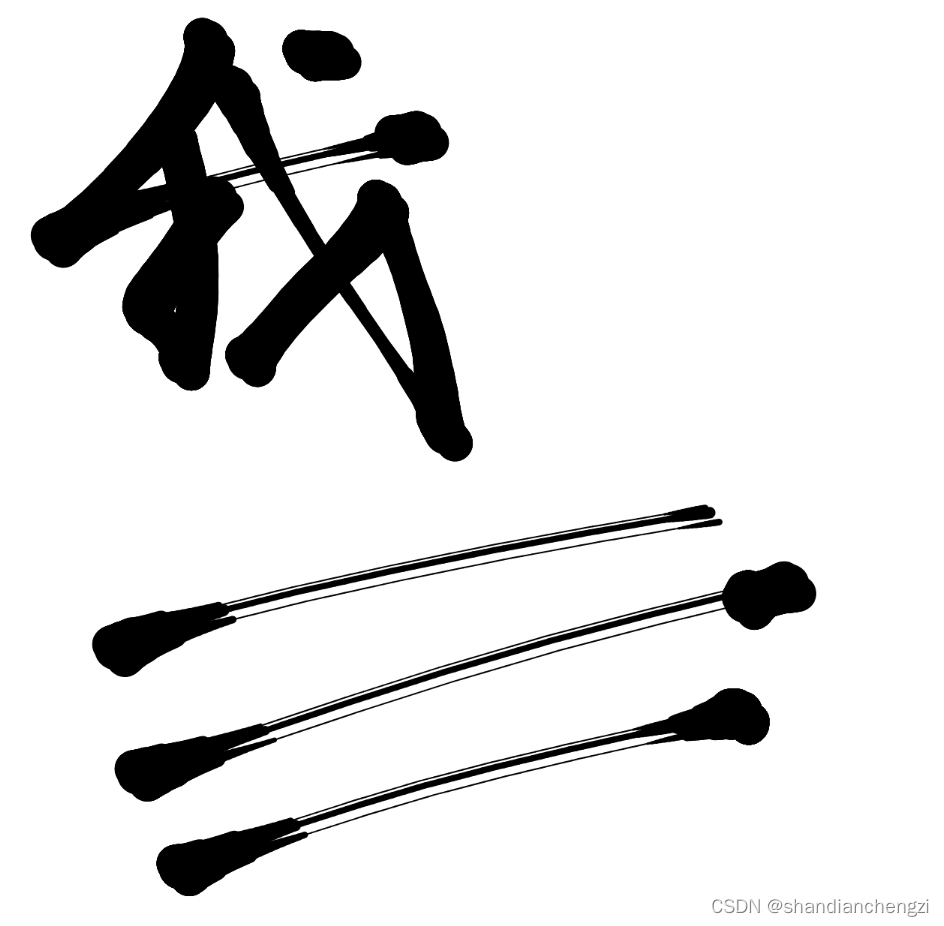
/**
* Added on October 22, 2020
*
* Hi, I'm BUN.
* I've been surprised at how many people have forked over this sketch, more than I expected. Thanks.
*
* Here is a sketch that explains this code with multiple codes.
* Please use it as a reference.
* https://www.openprocessing.org/sketch/793375
*
* Brief explanation.
* This code primarily uses "Hook's Law".
* In other words, it simulates the motion of a spring.
*
* From the mouse position, the position to be drawn is moved like a spring.
* And the width of the line is changed according to the speed of the movement.
*
** Added on May 8, 2021 **
* Gorilla Sun has written an explanation of each part with animations on his blog. Thank you!
* https://gorillasun.de/blog/Simulating-brush-strokes-with-Hooke's-Law-in-P5JS-and-Processing
**/
function setup() {
createCanvas(windowWidth,windowHeight);
distance = 10;
spring = 0.5;
friction = 0.5;
size = 25;
diff = size/8;
x = y = ax = ay = a = r = f = 0;
}
function draw() {
oldR = r;
if(mouseIsPressed) {
mX = mouseX;
mY = mouseY;
if(!f) {
f = 1;
x = mX;
y = mY;
}
ax += ( mX - x ) * spring;
ay += ( mY - y ) * spring;
ax *= friction;
ay *= friction;
a += sqrt( ax*ax + ay*ay ) - a;
a *= 0.6;
r = size - a;
for( i = 0; i < distance; ++i ) {
oldX = x;
oldY = y;
x += ax / distance;
y += ay / distance;
oldR += ( r - oldR ) / distance;
if(oldR < 1) oldR = 1;
strokeWeight( oldR+diff );
line( x, y, oldX, oldY );
strokeWeight( oldR );
line( x+diff*2, y+diff*2, oldX+diff*2, oldY+diff*2 );
line( x-diff, y-diff, oldX-diff, oldY-diff );
}
} else if(f) {
ax = ay = f = 0;
}
}
/**/

